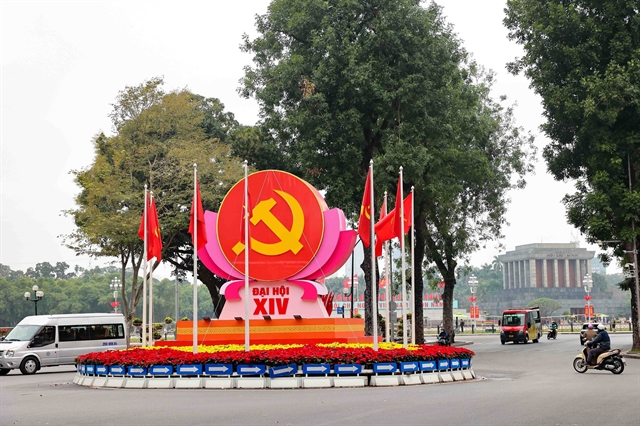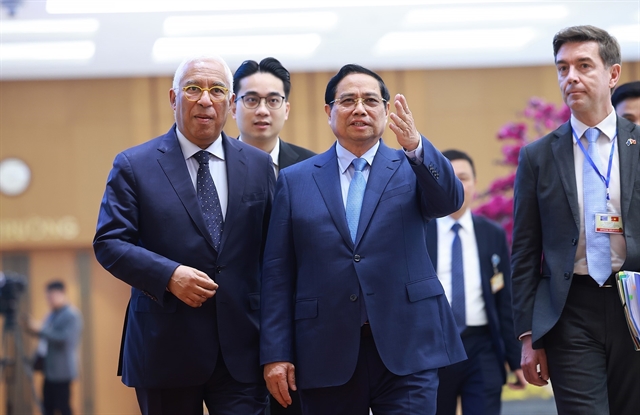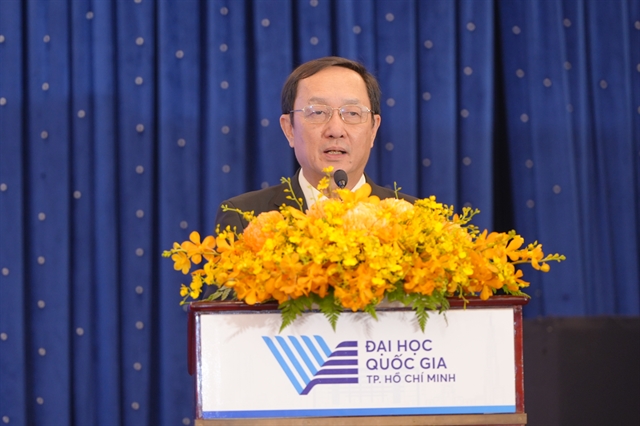 Economy
Economy
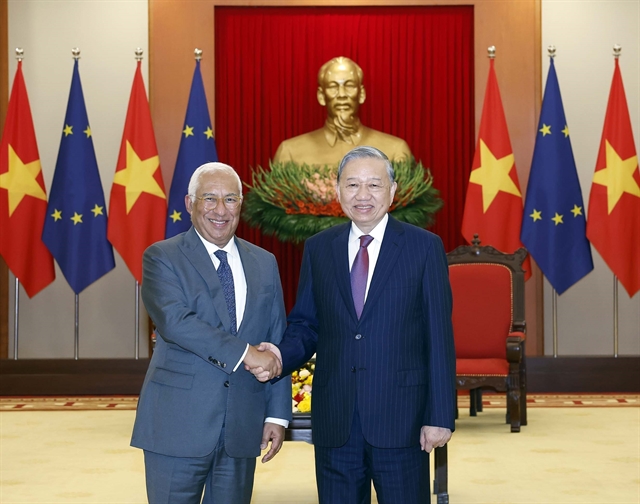
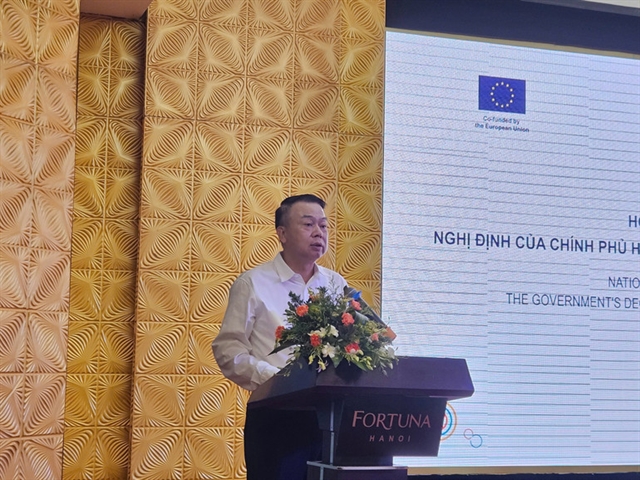
|
| Deputy Minister of Finance Nguyễn Đức Chi during a a speech at the conference. Photo nhandan.vn |
HÀ NỘI — The Ministry of Finance convened yesterday in Hà Nội a nationwide conference to discuss the draft decree implementing the revised State Budget Law.
This decree is pivotal in aligning the country’s financial management framework with new development priorities, ensuring it meets both national and international expectations for economic governance.
The approval of the 2025 State Budget Law (No. 89/2025/QH15), which outlines key fiscal objectives, places the responsibility on the government to develop specific regulations that will implement these provisions. The draft decree reviewed at the conference plays a central role in this process, outlining how the law will be applied across various sectors and regions, ensuring consistency in financial management nationwide.
Deputy Minister of Finance Nguyễn Đức Chi highlighted the broad scope of the 2025 State Budget Law, which will significantly impact multiple sectors and localities across the country. He stressed that the law will serve as a cornerstone in achieving Việt Nam’s socio-economic development goals in the coming years.
The conference marks a crucial step in refining the decree, with updates made after the National Assembly approved the new law. The objective is to ensure the decree is comprehensive, practical, and feasible when rolled out, allowing for smooth implementation.
The draft decree is structured around five guiding principles. First, it ensures alignment with the principles applied during the revision of the State Budget Law, consistent with National Assembly Resolution No. 203/2025/QH15, which amended several provisions of the Constitution and related laws. Second, the decree provides detailed regulations for key provisions outlined in the State Budget Law. Third, it reinforces the stability of the legal framework and supports the regulatory functions of ministries, sectors, and local authorities.
Fourth, the decree preserves effective provisions from the current system that have contributed positively to the country’s economic and social development. Finally, it simplifies administrative procedures to ensure feasibility, emphasising accountability at all levels of leadership and fostering decentralisation. This will empower ministries, sectors, and local authorities to take a more proactive role in budgeting, compliance, and public oversight.
At the conference, Gonzalo Serrano, Deputy Head of Cooperation at the EU Delegation, shared that the EU, in collaboration with the German Cooperation Agency (GIZ), has been closely supporting the Ministry of Finance as part of the Economic Governance Enhancement Program in Việt Nam.
He noted that the EU is particularly focused on assisting Việt Nam with the implementation of the new State Budget Law, ensuring it aligns with international best practices. This support extends to public investment reforms, the creation of a fair and transparent tax environment, and improving conditions for the private sector, including those from Europe. Strengthening the legal framework for budgeting will not only enhance the efficiency of public finance management but also help meet the country’s development and social welfare goals more effectively.
The conference also explored several critical issues, including the criteria for determining budget deficits, managing public debt, supporting non-state financial funds, and handling voluntary contributions. One notable point of discussion was the authority of local People’s Councils in deciding budget allocations. This aims to increase local autonomy while ensuring transparency and accountability in financial management.
Other discussions focused on the procedures for drafting and approving the state budget, detailing the responsibilities of relevant agencies, as well as guidelines for managing budget surpluses, shortfalls, and adjustments.
Deputy Minister Nguyễn Đức Chi underscored the importance of issuing this decree promptly to implement the new State Budget Law. It is crucial to ensure unity and consistency across the legal system, meeting the financial management demands of the country’s new development phase.
The Ministry of Finance is committed to incorporating feedback from all stakeholders, including ministries, agencies, localities, and international organizations, to refine the draft and ensure it meets the highest standards before being presented to the government for approval. VNS

